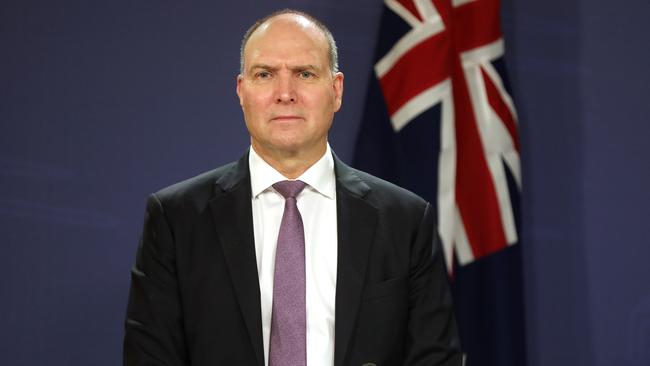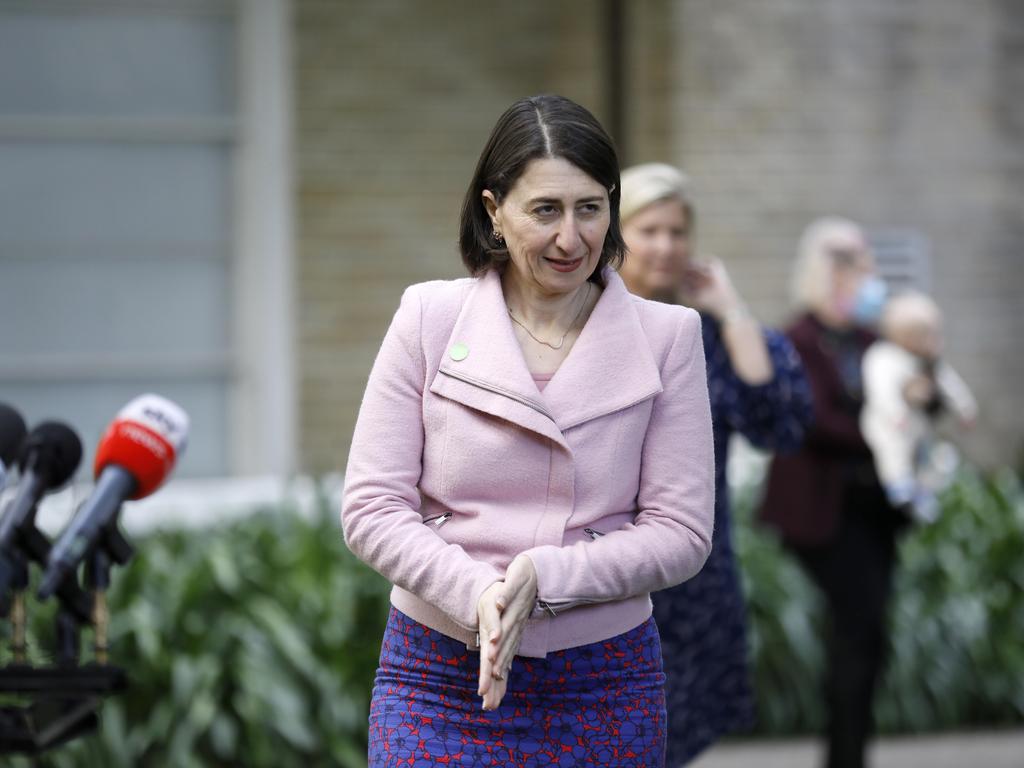Tax boost possible if businesses spend local, says National COVID-19 Commission chairman Nev Power
Businesses that spend money on local expansion would get bigger tax concessions and incentives under proposed reforms.

Businesses that spend money on local expansion would get bigger tax concessions and incentives under ideas for reform by the head of the nation’s key economic advisory board.
National COVID-19 Commission chairman Nev Power said concessions would boost investment — rather than be sent overseas — and shore up an economic recovery that teeters on the brink as Victorian coronavirus cases surge.
Mr Power told The Australian that the worsening situation in Melbourne was a once-in-a-lifetime calamity. “I don’t think we’ve ever seen anything like this and I hope we will never see anything like this again,” he said.
“It’s destroying people’s lives and livelihoods and businesses, and it’s destroying our way of life.”
While Treasury had previously estimated a six-week stage-three lockdown in Victoria would reduce GDP by $3.3bn in the September quarter, the stricter lockdown will almost certainly push economic growth significantly lower.
Mr Power flagged tax incentives to reward businesses that pumped money back into the economy, including expanding or building new factories, as a priority for recovery.
“We don’t want to provide incentives to companies who repatriate that back to overseas investments or shareholders,” Mr Powers said. “What we want is for companies to invest here.
“If we can add greater incentives to incentivise that investment, whether that’s systems and processes to digitise or automate, or to build new factories, or expand existing ones, those are the things that I’m keen to see us do.”
Mr Power singled out the research and development tax incentives, which allow companies to claim more than 100 per cent of their cost deductions in the early stages of research, and the federal government’s HomeBuilder program as models that could be adapted for the corporate sector.
The HomeBuilder scheme, which provides eligible owner-occupiers with a $25,000 grant to build or renovate a house, delivered a “massive multiplier” by incentivising the balance of the investment, Mr Power said.
“That same principle is what we want to apply right across the economy,” he said.
“The government is not funding 100 per cent of this, but rather is putting the cherry on the top or providing that incremental support to stimulate that investment.
“Doing the same thing for all of those companies thinking about investing in new plant or equipment or system, if there’s an incentive for them to reduce tax on the basis of investment they make, would be a very significant increase in investment that gets pulled through.”
Mr Power, the former chief executive of iron ore miner Fortescue Metals, was appointed to chair the National COVID-19 Commission in March.
Scott Morrison last week reconfigured the commission, which has now been asked to provide advice on job creation, and added new members to the committee.
The new additions include former Bendigo Bank managing director Mike Hirst, former Transurban chief financial officer Samantha Hogg and senior KPMG partner Paul Howes.
The board also includes former Telstra chief executive David Thodey, EnergyAustralia managing director Catherine Tanna and former Dow Chemicals chairman Andrew Liveris. Former Labor minister Greg Combet stepped down in June after taking an industrial relations role in the Attorney-General’s Department.
Mr Power’s time at Fortescue was marked by a sweeping overhaul of the Andrew Forrest-chaired company, taking it from a debt-laden, high-cost iron ore producer into a chased-up miner with low production costs.
Almost all of Fortescue’s production is sold to China, and with political tensions between Australia and its biggest trading partner under strain, Mr Power said business could act as a “flywheel” in the relationship between the two countries.
Australian and China, he said, were in a process of “resetting” their relationship for the future.
“Ultimately, China has grown and expanded dramatically in terms of its economic influence and more recently its sovereign influence in the region,” he said.
“It’s inevitable … that there are changes of position and new relationships need to be developed that accommodate everybody.”
Mr Power also noted debate around the merits of Modern Monetary Theory and whether governments should loosen their commitment to a budget surplus.
He said the current low cost of debt meant there was a lot more capacity for the government to take on more borrowings, but they needed to ensure increased borrowings were directed towards activities that would generate economic activity.








To join the conversation, please log in. Don't have an account? Register
Join the conversation, you are commenting as Logout